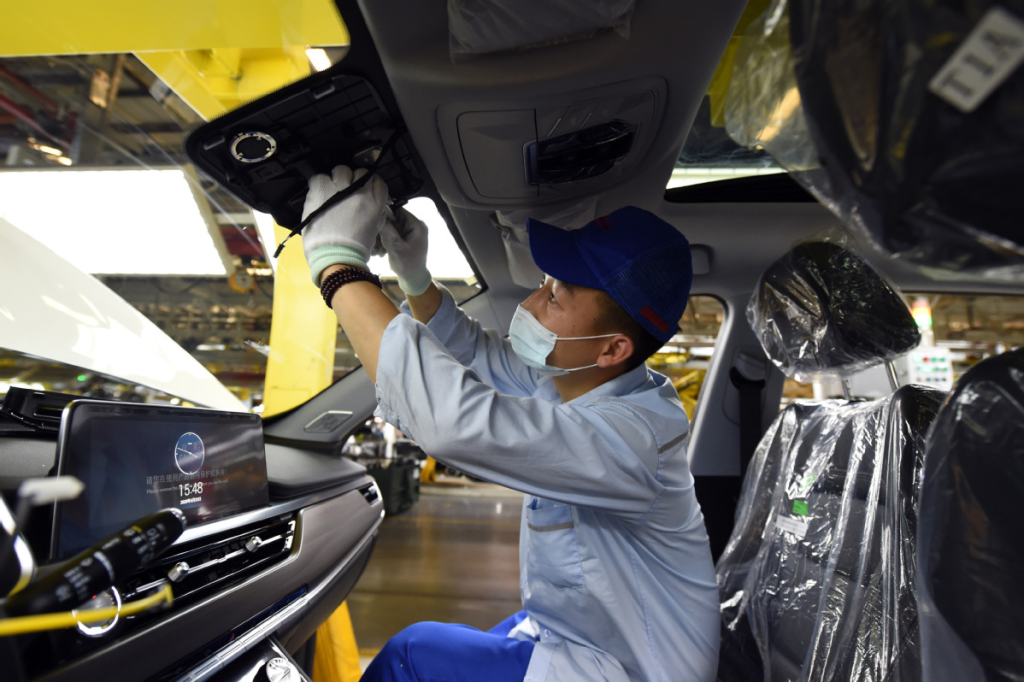US to ban Chinese tech in cars
3 min read

The United States is set to implement a ban on certain hardware and software produced in China and Russia from use in cars, trucks, and buses due to security concerns. Officials are particularly worried that this technology, which supports autonomous driving and enables vehicle connectivity, could be exploited by adversaries to “remotely manipulate cars on American roads.”
Currently, the presence of Chinese and Russian technology in American vehicles is minimal. However, Commerce Secretary Gina Raimondo emphasized the importance of these “targeted, proactive” measures to safeguard national security. She pointed out that modern vehicles are equipped with various technologies, such as cameras, microphones, and GPS tracking, all connected to the internet. “It doesn’t take much imagination to understand how a foreign adversary with access to this information could pose a serious risk to both our national security and the privacy of US citizens,” Raimondo stated.
In response, Chinese officials criticized the US for broadening the definition of national security to unfairly target Chinese companies. Lin Jian, a spokesperson for China’s Foreign Ministry, urged the US to adhere to market principles and ensure a fair and transparent business environment for Chinese enterprises. “China opposes the US’s broadening of the concept of national security and the discriminatory actions taken against Chinese companies and products,” he remarked.
The proposal is now entering a comment period, reflecting the Biden administration’s ongoing efforts to limit China’s role in the automotive supply chain. This is part of a broader strategy that has included raising tariffs on electric vehicles and their components, as well as banning imports of Chinese-made cargo cranes due to cybersecurity concerns. The US government launched an investigation earlier this year to assess the cyber risks associated with so-called connected cars.
Under the proposed regulations, prohibitions on software will take effect starting with the 2027 model year, while hardware restrictions will come into force three years later. This timeline is designed to provide the automotive industry ample opportunity to adjust their supply chains accordingly.
John Bozzella, president and CEO of the Alliance for Automotive Innovation, which represents major car manufacturers, noted that there is currently “very little technology—hardware or software—in today’s connected vehicle supply chain that enters the US from China.” However, he acknowledged that the new rules would necessitate some companies to seek alternative suppliers. “You can’t just flip a switch and change the world’s most complex supply chain overnight,” he cautioned.
Bozzella also mentioned that the lead time included in the proposed regulations could allow some automakers to transition smoothly, though it might be too short for others. The association plans to continue sharing its insights as the final rules are developed.
This move highlights a growing trend of increasing scrutiny and restrictions on technology transfers and collaborations between the US and China, particularly in sectors deemed critical to national security. As the automotive industry becomes more intertwined with advanced technologies, the implications of these regulations could resonate throughout the global supply chain.
As the comment period unfolds, stakeholders across the automotive sector will be closely monitoring the situation, weighing the potential impacts of these restrictions on innovation, competitiveness, and international relations. The outcome of this initiative could set a precedent for future regulatory actions aimed at safeguarding national security in an increasingly interconnected world.
In summary, the US government’s planned ban on certain Chinese and Russian technologies in vehicles marks a significant shift in policy, emphasizing the importance of cybersecurity in the modern automotive landscape. The ongoing dialogue between US and Chinese officials indicates that this issue will remain contentious, reflecting broader geopolitical tensions as both nations navigate their economic futures.